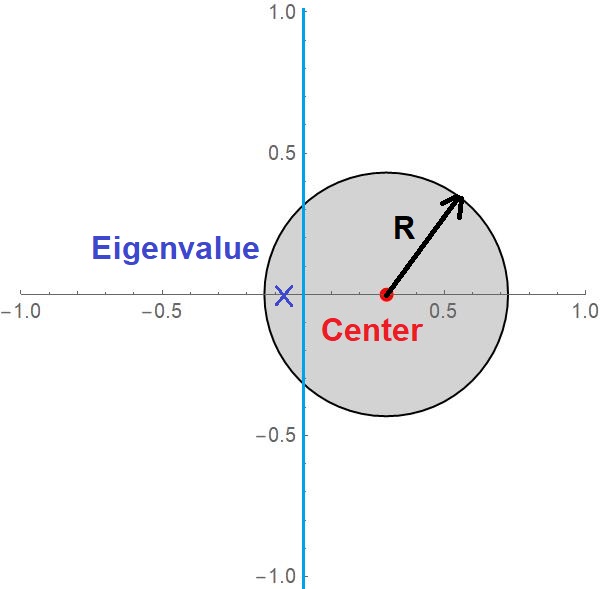In mathematics, the Gershgorin circle theorem can be used to localize eigenvalues of a matrix (including symmetric). Let $A$ be a real symmetry $n × n$ matrix, with entries $a_{ij}$. For $i∈{1,…,n}$ let $R_i$ be the sum of the absolute values of the non-diagonal entries in the $i$-th row:
$R_{i}=\ \sum_{j≠i}^{}|a_{ij}| \$$R_{i}=\ \sum_{j \neq i} |a_{ij}| $
Let $D(a_{ii},R_{i})\subseteq \mathbb {C}$ be a closed disc centered at $a_{ii}$ with radius $R_{i}$. Such a disc is called a Gershgorin disc.
Theorem: Every eigenvalue of $A$ lies within at least one of the Gershgorin discs $D(a_{ii},R_{i}).$
I was interested in the case when the center of the circle closest to the imaginary axis is in the right half-plane, but part of the circle also intersects the negative half-plane. In this case, the eigenvalue of the matrix may be negative, but satisfies the Gershgorin circle theorem.
Problem: What condition can be added to the Gershgorin theorem so that the eigenvalues localized with its help always lie only in the right half-plane, i.e. were only positive? This condition should also make it work in cases where the circle may slightly touch the left half-plane.

